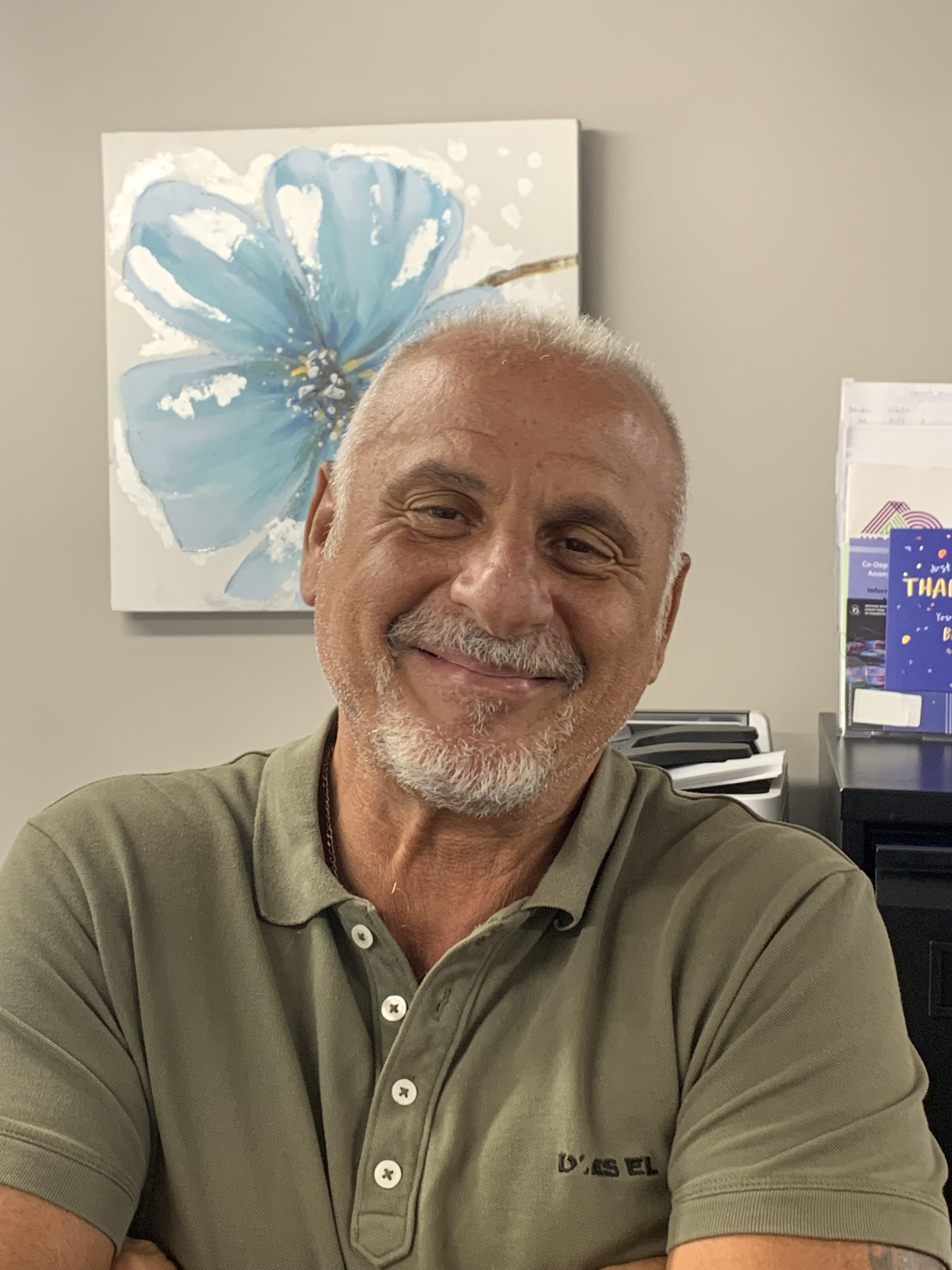Anyone going through rehab knows the numerous challenges that come with maintaining long-term sobriety, with relapse remaining one of the most significant hurdles to rehab success. Alcohol addiction is a common focus of rehab programmes, and many success stories highlight the effectiveness of structured treatment for those struggling with alcohol use.
Rehab success rates in the UK vary widely depending on the type of treatment, individual circumstances, and access to ongoing support. Understanding the factors that influence recovery, from psychological factors and social networks to clinical interventions and aftercare services, is essential for improving outcomes.
At PCP, we recognise that effective rehab goes beyond simply achieving abstinence; it involves personalised, evidence-based approaches that address the full spectrum of patient needs. A multi-faceted treatment system that adapts to individual needs and recovery capital is crucial for delivering the best possible outcomes. By examining UK rehab success rates and the key predictors of recovery, we can highlight which strategies maximise long-lasting results and sustainable wellbeing.
Key Points
Recovery is achievable – around 5% of UK adults report resolving a substance or alcohol problem, highlighting millions living in successful recovery.
Success is multidimensional, reflecting abstinence or reduced use, mental well-being, stable housing, employment, and social reintegration – not just negative drug tests.
Alcohol remains the most common substance in recovery data, followed by cannabis, opioids, and stimulants.
Support systems matter – nearly half of people who recover receive professional or community support, including NHS services, specialist treatment, and mutual-aid groups.
Early intervention, integrated mental health care, and strong social support consistently predict positive outcomes.
Certain substances and polysubstance use are associated with more complex recovery and higher relapse risk.
Relapse does not equal failure – addiction is chronic and relapse is often part of recovery trajectories.
The UK’s recovery-oriented model, strengthened by lived experience and community support networks, supports long-term stability and reintegration.
How Is Rehab Success Defined?

Creating an overarching definition of rehab success poses a significant challenge. Addiction is a complex, multifaceted issue, and every individual enters treatment with a unique background, health status, and set of personal circumstances.
Addiction treatment itself is also quite diverse; people respond differently to various therapeutic methods, and progress often occurs gradually and unevenly across different aspects of recovery. The importance of a comprehensive treatment programme tailored to individual needs cannot be overstated, as it ensures that each person receives the most effective support for their unique situation.
Therefore, to understand rehab success more accurately, recovery is typically viewed across several key areas:
Clinical indicators of recovery: Abstinence or significantly reduced substance use, improved withdrawal management, and reduced cravings. Controlled use without harm – such as methadone programmes – can also represent meaningful clinical progress.
Psychological indicators of recovery: Improved emotional stability, development of effective coping strategies, reduced anxiety or depression, and enhanced resilience in managing triggers or stress. Regular therapy sessions play a crucial role in supporting these psychological improvements and helping individuals maintain progress.
Social and functional indicators of recovery: Improved relationship stability, steady employment or education, stable housing, and reduced or absent criminal behaviour linked to substance use.
Viewed through these dimensions, it becomes clear that success is not defined solely by a negative drug test. True recovery means long-lasting reintegration into a healthy, purposeful life, characterised by stability, wellbeing, and the ability to contribute meaningfully to society. Achieving these outcomes is often the result of a personalized treatment plan that addresses both addiction and any co-occurring mental health needs.
Now that we have a clear picture of what defines rehab success in the UK, we can explore how many people in the UK achieve these outcomes and what the data reveals about national recovery rates.
What Are the Current Rehab Success Rates In the UK?
Current evidence from a nationwide survey suggests that around 5% of the UK population – approximately 2.7 million people – identify as having successfully resolved an alcohol or drug problem, according to recovery reported in the survey. This highlights that long-term recovery is not only possible, but already a reality for millions.
Among people self-reporting recovery, alcohol remains the most common primary substance, accounting for 57.6% of cases. Problematic alcohol use and problematic alcohol are key challenges in recovery, reflecting the lengthy process often associated with overcoming Alcohol Use Disorder. This was followed by cannabis at 19.8%, with smaller proportions citing opioids, stimulants, and other drugs. This mirrors wider treatment-entry trends, where alcohol remains the dominant driver of addiction recovery services in the UK.
Another important piece of information from the survey was that recovery rarely occurs in isolation. Nearly half (49.9%) of people who achieved resolution reported receiving some form of professional or community support. Many individuals received treatment through various channels, including treatment centres, which play a crucial role in supporting recovery.
Around 17.7% sought help through their GP, while 25.6% engaged with specialist treatment services, including outpatient and inpatient programmes. Of those who received treatment, completing treatment is a key factor in achieving long-term recovery success.
Community and peer-based support also played a key role, with 22.6% accessing recovery support services and 29.7% attending mutual-help groups such as Alcoholics Anonymous or Narcotics Anonymous. Group therapy is a core component of these mutual-help programs, providing connection and accountability.
Since the 2010 UK Drug Strategy, the expansion of community-based recovery models – including recovery housing, peer mentoring, and lived-experience recovery organisations – has strengthened what is often referred to as a recovery-oriented system of care. This system supports sustained abstinence, social reintegration, and long-term well-being. Many people recover without formal support, and natural recovery is recognised as a legitimate pathway to overcoming substance use disorders. However, over half of individuals do not complete treatment or do not engage with formal services, highlighting the ongoing challenges in supporting all those affected.
For those needing intensive support, residential rehab and residential treatment are available as structured, inpatient options that provide 24/7 care and a supportive environment for recovery.
How Do the UK Rehab Success Rates Compare to Similar Countries?
When compared internationally, the UK’s recovery outcomes align broadly with other high-income countries. In the United States, an estimated 9.1% of adults report resolving a substance use problem—higher than the UK’s 5%—though the US also has a larger treatment-seeking population and a higher overall success rate in some treatment settings.
The substance use burden is greater in the US, where, according to the National Institute on Drug Abuse, 48.5 million people (16.7%) experienced substance use disorders in the past year, including 10.2% with alcohol use disorder, 9.7% with a drug use disorder, and a significant proportion affected by opioid use disorder. Drug abuse and drug addiction treatment remain major focuses of US healthcare policy and research, with the Recovery Research Institute providing authoritative data on recovery rates and outcomes.
As in the UK, mental health comorbidities—particularly the high prevalence of co-occurring mental illness—along with prior criminal justice involvement, strongly predicted treatment engagement. Notably, medication-assisted treatment uptake is comparatively higher in the UK, likely reflecting differences in healthcare accessibility, NHS-led addiction services, and the impact of different treatment settings on recovery outcomes. In the US, the Mental Health Services Administration plays a key role in overseeing and funding mental health and substance use disorder services.
Predictors of Recovery and Rehab Success

Research consistently shows that certain factors strongly predict successful recovery and positive treatment outcomes across different settings.
Integration of mental health care, early intervention, and robust social support networks significantly improves outcomes, highlighting the importance of addressing both psychological and environmental influences. Access to sustained treatment, stable housing and employment, peer support, and structured aftercare also enhances long-lasting recovery. Evidence-based approaches, such as behavioural therapies and structured treatment, are essential to improve treatment outcomes.
System-level factors matter as well: in the UK, the NHS and charity-funded programmes provide broad, accessible support, whereas in the US, private rehab services dominate, often limiting access based on financial resources. The presence of a robust treatment system that offers individualized, multi-faceted care is crucial in supporting recovery. Despite these structural differences, the core predictors of recovery remain remarkably consistent across countries.
Polysubstance use and substance misuse, especially abusing certain substances such as opioids, stimulants, and benzodiazepines, are associated with more severe withdrawal, higher relapse risk, and longer recovery, which means they often require more intensive, sustained treatment focused on treating addiction.
Other important predictors of rehab success and treatment outcomes include:
Motivation for change
Coping skills & emotional regulation
Treatment adherence
Co-occurring psychiatric conditions
Severity/duration of addiction
Number of prior relapses
Physical health
Presence of active substance-using peers in the household
Access to medication-assisted treatment (MAT) for opioids/alcohol
Culturally competent & equitable care
Presence of cognitive impairment from chronic use (e.g. alcohol-related brain changes)
Involvement of multidisciplinary teams, including medical professionals
Use of behavioural therapies as a key intervention
The Role of Family and Social Support in Rehabilitation Success
Family involvement and social support are critical components of sustained recovery. People in recovery with strong family connections often show higher adherence rates to treatment programs and a lower chance of relapse.
Families can provide emotional encouragement, monitor progress, help maintain accountability, and create a stable environment that supports recovery goals. Studies have shown that education for family members on addiction and coping strategies further strengthens these benefits.
Peer networks also play a vital role and have been consistently linked to improved treatment retention and long-term abstinence. Mutual-support groups such as AA or NA offer individuals a community of shared experience, fostering accountability, empathy, and motivation.
Community-based programs like recovery centres, peer mentoring, and sober living environments, extend these benefits by providing structured social support outside the home. These environments promote healthy routines, skill development, and social reintegration, reducing isolation and exposure to high-risk situations.
Recognising these influences allows treatment providers to incorporate family therapy, social support planning, and community engagement strategies into long-term treatment plans.
The Economic and Social Impacts of Successful Rehab

Successful rehabilitation has benefits beyond just the individual. It also produces measurable economic and social gains.
One of the most direct effects is a reduction in healthcare costs, with research by the NHS suggesting that addiction may cost the UK public over £3.5 billion yearly in direct healthcare costs. Like other chronic diseases such as diabetes and hypertension, addiction is associated with high rates of relapse and ongoing management challenges. Individuals in sustained recovery experience fewer hospitalisations, emergency interventions, and chronic health complications associated with substance use and other chronic diseases. This takes away some of the strain on public health services and allows resources to be redirected toward preventive care—which is more cost-effective in the long run.
Employment outcomes also improve following recovery, with a study highlighting that unemployed individuals were twice as likely to struggle with drug addiction. In the UK it is estimated that alcohol abuse alone costs employers £21 billion per year, while illicit drugs have an estimated cost of £15 billion per year. These costs included lost productivity and absenteeism, worker turnover and recruitment costs, workplace accidents, workers’ compensation, incarceration, premature deaths, and manpower lost to crime.
Individuals in sustained recovery are more likely to maintain steady work, contribute to productivity (since 70% of drug users over 18 are part of the labour force), and regain financial independence. Employment provides not only economic security but also purpose, structure, and social integration, which reinforce continued abstinence.
Crime reduction is another important societal impact of successful rehabilitation. Substance use is often linked to criminal activity, whether directly (drug-related offences) or indirectly (crime committed to fund addiction). Successful rehab reduces recidivism and reliance on the criminal justice system, generating additional social and economic savings.
Broader societal benefits include improved family stability, stronger communities, and reduced social service burdens. Communities experience greater cohesion and safety, while individual families benefit from restored relationships and decreased stress.
Addiction is a chronic disease, much like other chronic diseases, requiring ongoing care, support, and relapse prevention strategies to ensure long-term recovery and minimise complications.
What Are the Limitations in Measuring Rehabilitation Success Rates?
Recovery is deeply personalised and influenced by medical, psychological, and social factors – many of which are difficult to quantify using concrete metrics. As a result, success rates often provide an incomplete picture. Let’s examine some of the challenges in measuring the success of addiction treatment.
Different definitions and recovery paths: Recovery is non-linear, and the recovery process itself is complex, meaning relapse can occur even as a person continues to progress overall. “Success” can mean different things to different people, including abstinence, reduced use, harm reduction, or simply improved daily functioning and quality of life. Certain substances also follow different recovery trajectories, making comparisons challenging. For example, recovering from cannabis addiction may take weeks or months, while many chronic alcoholics deal with lifelong physical and cognitive challenges.
Data quality and reporting challenges: Much of the available data is self-reported, which introduces the risk of inaccuracy and under-reporting due to stigma or recall issues. Many individuals also recover without formal treatment, meaning their experiences are not represented in clinical outcome data. Furthermore, aftercare adherence and long-term engagement are difficult to track once a person leaves treatment, and it can be challenging to accurately measure how many have successfully completed treatment programmes.
Monitoring and follow-up limitations: Studies often use inconsistent follow-up periods, and many treatment programmes lack long-term outcome tracking. The absence of a standardised national reporting system further limits reliable comparisons across services.
Complex health and social factors: Co-occurring mental health conditions complicate outcome measurement, and improvement in social factors such as housing, employment, and family support is rarely fully captured – yet these elements are critical to sustained recovery.
Looking to the Future: Innovations and Emerging Trends in Addiction Treatment Geared Towards Long-Term Sobriety

Addiction rehabilitation is increasingly focused on sustaining long-lasting recovery through the use of innovative techniques and emerging technologies. These approaches aim to improve treatment accessibility, personalisation, and continuous support beyond traditional clinical settings, supporting individuals throughout their recovery journey.
Technology-assisted therapies such as telehealth sessions and virtual cognitive-behavioural therapy (CBT) platforms are transforming the rehabilitation landscape. They allow individuals to maintain consistent contact with professionals, even post-discharge, supporting continuity of care and early intervention when challenges arise.
Mobile recovery apps and wearable devices are also proving valuable in long-lasting sobriety management. They track mood, sleep, cravings, and activity levels, providing users with insights and linking them to support networks and therapists in real time. These digital tools encourage accountability and promote self-awareness during recovery.
Holistic and integrative methods – like mindfulness training, physical exercise, nutritional therapy, and creative expression – continue to complement clinical care. By addressing the emotional, psychological, and physical aspects of addiction, these practices strengthen resilience and prevent relapse. Integrating these approaches with traditional rehab treatment enhances the effectiveness of structured treatment plans and supports comprehensive care.
Additionally, data-driven innovations such as AI-based relapse prediction models and outcome monitoring systems are being adopted to tailor ongoing treatment plans. These advancements mark a shift toward more adaptive, technology-enabled rehabilitation designed to maintain lasting sobriety and support continuous recovery, as sustained abstinence over time is key to reducing relapse risk.
Seek Help Today at PCP
Rehab success is multidimensional, encompassing clinical, psychological, and social improvements rather than simply abstinence. While relapse can occur, evidence shows that with early intervention, integrated mental health care, social support, and structured aftercare – lasting recovery is achievable. The UK’s combination of NHS, charity, and private services provides multiple pathways for individuals seeking help.
If you or a loved one is ready to take the next step, PCP offers personalised, evidence-based rehab programs designed to address all aspects of recovery. Start your journey today and take the first step toward a healthier, purposeful, addiction-free life.
Authors
-
Dr Otulana is PCP’s longest-serving doctor. He is an experienced Physician with Specialist Interest in Substance Misuse Management and he has a wide range of experience in the assessment and management (including detoxification) of clients with various drug and substance addiction problems. Dr Otulana started practising as a doctor in 2000 and with over 10 years as an Addiction Physician. He is an Advanced Addiction Practitioner Member of Addiction Professionals and also holds the Certificate in Clinical Psychopharmacology (Part 1) of the British Association for Psychopharmacology. He is additionally a strong healthcare services professional with a Master of Business Administration (M.B.A.) degree from Cambridge University Judge Business School.
View all posts -
Andy's journey in psychology and substance recovery is marked by significant educational and professional achievements. He studied Person Centered Counseling, gained insights from psychological literature, and completed an online course on the mind. His hands-on experience includes volunteering at a Drug and Alcohol Clinic and earning a diploma in child adverse experiences. Andy holds a first-class honors degree in Psychology with Substance Use and Misuse. Professionally, he has contributed as a Lived Experience Coordinator and counselor, offering hope and empowerment to those in recovery.
Qualifications and Experience:
Introductory Course in Person Centered Counseling
View all posts
Extensive study of psychological literature (including Carl Rogers and Freud)
Online course completion on the Mind from UCT
OCN peer mentoring course
Level 3 diploma in child adverse experiences
First-class honors degree in Psychology with Substance Use and Misuse
Experienced Lived Experience Coordinator for Probation Dependency and Recovery service









